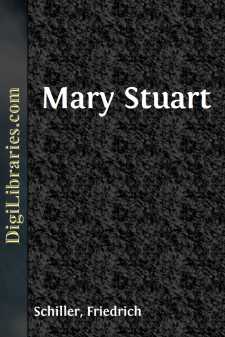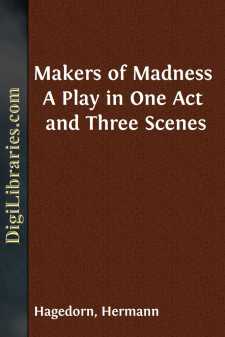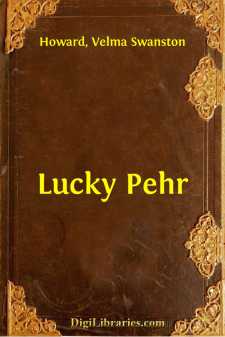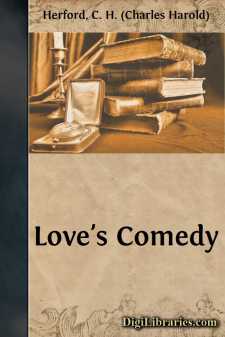Drama Books
Sort by:
SCENE I. A common apartment in the Castle of Fotheringay. HANNAH KENNEDY, contending violently with PAULET, who is aboutto break open a closet; DRURY with an iron crown. KENNEDY.How now, sir? what fresh outrage have we here?Back from that cabinet! PAULET.Whence came the jewel?I know 'twas from an upper chamber thrown;And you would bribe the gardener with your trinkets.A curse on woman's...
more...
by:
Bernard Shaw
You once asked me why I did not write a Don Juan play. The levity with which you assumed this frightful responsibility has probably by this time enabled you to forget it; but the day of reckoning has arrived: here is your play! I say your play, because qui facit per alium facit per se. Its profits, like its labor, belong to me: its morals, its manners, its philosophy, its influence on the young, are...
more...
by:
Hermann Hagedorn
SCENE I A room in the Ministry of War in the capital of Iberia. Evening. The minister of war, a tall, stern, bearded man with deep-set eyes and many furrows, is sitting at a large, mahogany desk-table, Left. The chief of staff, silent, motionless and watchful, stands beside him with his hands resting on the table-top. He is thin, old and emaciated, clean-shaven, firm-lipped, and looks startlingly like...
more...
by:
Bernard Shaw
ACT I It is after dinner on a January night, in the library in Lady Britomart Undershaft's house in Wilton Crescent. A large and comfortable settee is in the middle of the room, upholstered in dark leather. A person sitting on it [it is vacant at present] would have, on his right, Lady Britomart's writing table, with the lady herself busy at it; a smaller writing table behind him on his left;...
more...
Scene: A plantation of thin young trees, in a misty and rainy twilight; some woodland blossom showing the patches on the earth between the stems. The Stranger is discovered, a cloaked figure with a pointed hood. His costume might belong to modern or any other time, and the conical hood is so drawn over the head that little can be seen of the face. A distant voice, a woman's, is heard,...
more...
by:
Aristophanes
FOREWORD Lysistrata is the greatest work by Aristophanes. This blank and rash statement is made that it may be rejected. But first let it be understood that I do not mean it is a better written work than the Birds or the Frogs, or that (to descend to the scale of values that will be naturally imputed to me) it has any more appeal to the collectors of "curious literature" than the Ecclesiazusae...
more...
ACT ONE SCENE: A Room in the Church Tower. Window shutters at back wide open, starlit sky is seen through windows. Background: Snow covered house-roofs; gable windows in the distance brilliantly illuminated. In room an old chair, a fire-pan and a picture of the Virgin, with a lighted candle before it. Room is divided by posts—two in centre thick enough to conceal an adult. Chant, in unison, from the...
more...
by:
John Galsworthy
ACT I SCENE I The dressing-room of CHARLES WINSOR, owner of Meldon Court, nearNewmarket; about eleven-thirty at night. The room has pale greywalls, unadorned; the curtains are drawn over a window Back LeftCentre. A bed lies along the wall, Left. An open door, Right Back,leads into LADY ADELA's bedroom; a door, Right Forward, into a longcorridor, on to which abut rooms in a row, the whole length of...
more...
INTRODUCTION* Koerlighedens Komedie was published at Christiania in 1862. The polite world—so far as such a thing existed at the time in the Northern capital—received it with an outburst of indignation now entirely easy to understand. It has indeed faults enough. The character-drawing is often crude, the action, though full of effective by-play, extremely slight, and the sensational climax has...
more...
SCENE I. MILLER—MRS. MILLER. MILLER (walking quickly up and down the room). Once for all! The affair is becoming serious. My daughter and the baron will soon be the town-talk—my house lose its character—the president will get wind of it, and—the short and long of the matter is, I'll show the younker the door. MRS MILLER. You did not entice him to your house—did not thrust your daughter...
more...











